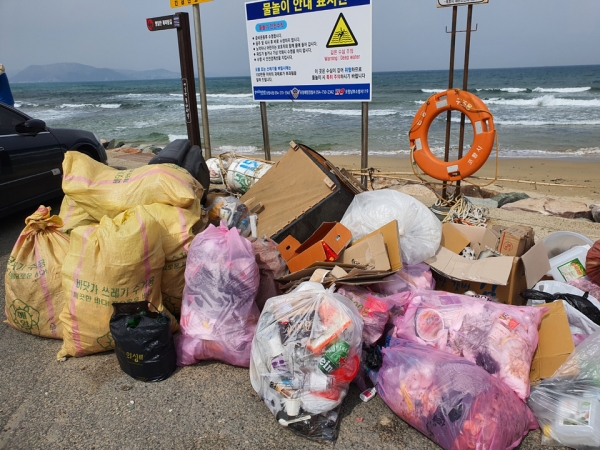
Commonly referred to as “chabak”, car camping has gained massive popularity in Korea. Since COVID-19 broke out, people have searched for ways to travel while abiding by social distancing rules, and car camping surely met the needs of many. If so, what exactly is car camping? According to MtnScoop, car camping describes the act of driving up to a campsite and choosing to either sleep directly in one’s vehicle, or set up camp and use the car as storage.
The campsites in which campers choose to park their car show wide locational diversity, from the standard, populated campsites to rural mountains, tranquil lakesides, and abandoned beaches. In addition, taking a car to the campsite makes the whole camping process much more convenient since a car provides instant shelter without the need to manually set up a tent. The fact that car campers can bring luxuries with them is also a huge benefit. These appealing advantages in options and convenience allow for campers to experience unfamiliar landscapes with a snug groove.
However, severe side effects emerged as car camping became popular. Korea’s beaches and coastal areas—the most conventional car camping sites in the nation—are being plagued by loads of garbage and noise pollution. Some people have even been reported for urinating on beaches. Residents living near these car camping sites have filed complaints for the odious litter and loud noises of campers.
In response, several local governments have issued administrative orders restricting car camping. For example, in December 2020, Busan Gijang-gun issued an administrative order banning the act of camping, cooking, or drinking of two or more people on coastal areas, including Ilgwang Beach. Unfortunately, this order failed to reduce the number of car campers visiting Gijang-gun. Hence, the next step was to start charging public parking lots near Ilgwang Beach beginning July 2021. Time will tell whether this subsequent administrative measure will be effective or not.
As mentioned above, a positive correlation between car camping and ocean pollution has been found. The garbage carelessly littered by campers on beaches flows into the ocean, and becomes degraded into microplastics which destroy the marine ecosystem in the long run. According to Evaluating scenarios toward zero plastic pollution published in Science in 2020, plastic waste is entering the ocean at a rate of about 11 million metric tons a year and could grow to 29 million metric tons over the next 20 years. This problem is not limited to the marine ecosystem. Since water circulates, microplastics have recently been found in fruits and vegetables, resulting in their intake by human beings.
There have been movements to prevent further environmental issues in coastal areas. According to the Ministry of Oceans and Fisheries, there are 22 water surface cleaning boats arranged on 14 trading ports nationwide. These water surface cleaning boats collect approximately 4,000 tons of ocean waste every year. Also, Hyundai Motor Group launched a campaign called “Eco Parking”. At a beach car park located in Sanxenxo, Spain, Hyundai Motor Group installed a special device where parking fee was paid for by recycling plastic containers. Most importantly, in a survey conducted from May 14 to June 19 by online camping community Booreung Booreung Camp, results showed that car campers are becoming aware of the intolerable litter problems. Hopefully, this will lead to some introspection within the camping community, prompting proper garbage disposal on campsites of priceless natural beauty.


